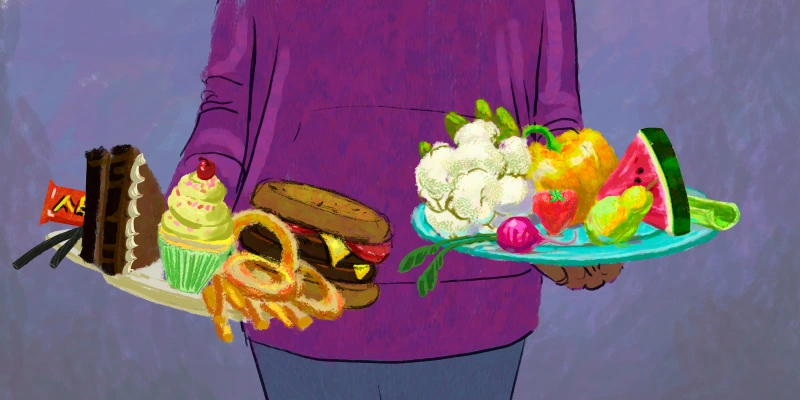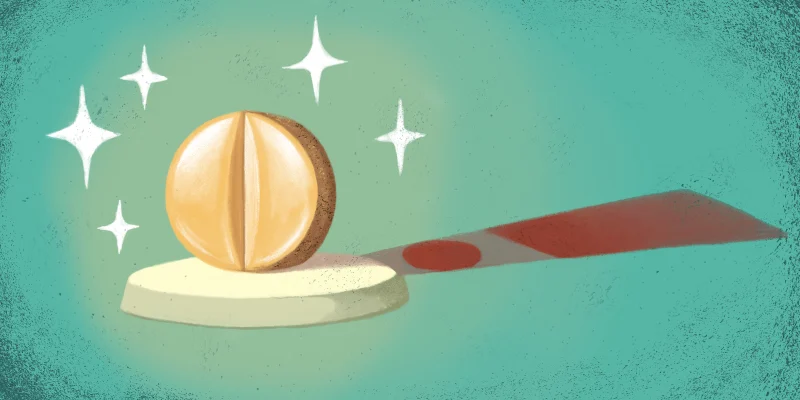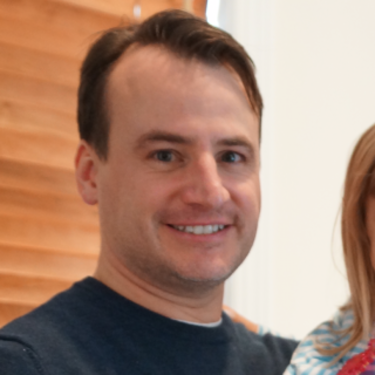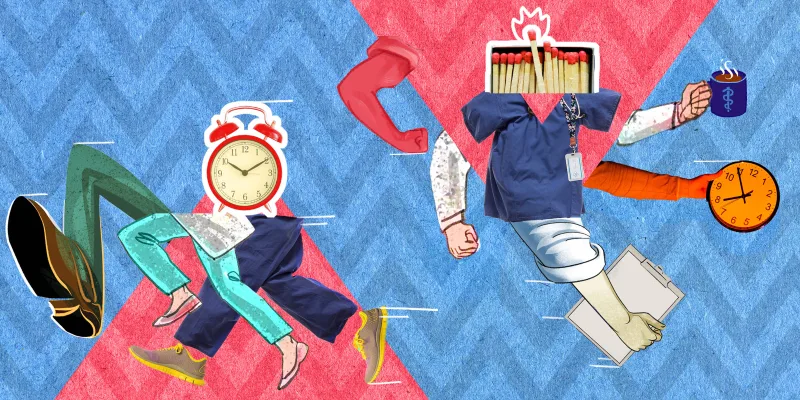
I stared at a color-coded calendar going through my day. Woke up at 7 a.m. (green), was at school by 8 a.m. (red), read until 10 a.m. (orange), took a 10 minute break (yellow), read until 12 p.m. (orange), ate for 30 min while reviewing (blue), did questions, hopefully finished by 8 p.m. (purple) and was in bed by 10 p.m. (gray). Repeated to myself: “If I do this every day, I should be ready." I ignored things such as burnout, showering, or eating, as all other tasks seemed secondary to the Step 1 and unworthy of a color. Step 1 is regarded by many as the single most determining factor for a future physician.
From the moment I entered medical school, I knew I would have to take three national exams. I also knew that my performance in those tests will heavily dictate some of the opportunities in my future career as a physician. Step 1 may be considered a rite of passage not only from the preclinical to the clinical years, but also a major stepping stone. Simply the mention of Step 1 to a medical student, or even a physician who took it, elicits an expression of consternation. Some people have described the time preparing for it as the worst and most challenging time of their career. Many people gave me warnings regarding the importance of emotional intelligence and self-confidence, but as the weeks went by that stability seemed almost impossible to achieve. Some pieces of advice, though well-intentioned, were not as helpful. I would magically improve on test day if I changed my studying technique: use this resource, sleep more, sleep less, do flashcards, stand on my hands to get more blood flow to my brain. Though these statements meant well, most were not as helpful as people would have liked them to be. They were like putting duct-tape on a sinking boat, me.
I do not regret taking extra time and changing my life plans to successfully take Step 1. At the present, it has been the most important exam of my life, though I wish my experience had been different. I spent a total of 14 weeks during which I woke up every day, read study material, did questions, and nothing else. I questioned my abilities and felt like a robot reviewing material all day, every day. When I finally took Step 1, I felt I needed to piece myself back and rediscover who I was. This first examination takes everything; it is a substantial physical and emotional toll. I tried to get as close to my limits as possible without going over the breaking point and come out somewhat sane. I questioned my every decision. When I was not reaching the numbers I wanted in the practice exams, I questioned my mental ability, I doubted my capacity as a future physician, challenging everything I ever thought I knew — which ended up hurting me in the process. This test was ultimately a personal battle against myself, against my unconformities, and against the fears that filled my head.
After I took my examination, I felt as if I had PTSD. I had dreams about it for weeks, not to mention many flashbacks. Even after receiving my grade I am haunted by my experience. My boundaries were pushed and the extents to which I was willing to go is beyond what many consider possible. Many of my peers succumbed to addiction, depression, and self-destructive behaviors that some cover up when impressing a physician but may resurface as deeper personal issues later in life.
My experience through Step season was less than ideal though not due to lack of effort. I took Step 1 after taking a course where I not only gained the test taking skills to pass my test but also grew immensely. It opened my eyes to the hardships other students faced across the nation. For many, it is not a straight road. The people I met in the program taught me about how vital resilience is and each person had a unique and challenging story that brought them there. I met beautiful people who helped me up while they went through tough times themselves. They were nobler to me than some I have met that are considered at the top.
The notion that I would do well on this test and things would go right turned out to be real. I am meant to succeed, and things will get better. Step 1 has a 98% pass rate; the national average goes up every year and most people that apply to residency actually match. However, when things do not go as planned, one begins to question their own abilities and intellectual capacity, sometimes even wondering, what is wrong with me? Students, after getting their score and taking into consideration their extracurricular activities, self-sort themselves into specialties, and think about what they have to do to improve their chances to match into another. Though it may seem like it, the score does not define me; it does not determine my worth. It may get me to the door, but I must shine on my own on the other side. I am not the same person I was before I went through this. I still have many more steps on my way to becoming a physician. It’s but a snapshot of a moment and time of my education. I still have a long way to go after it is over. No correlation has been found between the performance on this test and the performance as a physician. There are plenty of clinical, academic, and humanitarian opportunities to showcase other abilities which a standardized test does not show. After this test, I will continue to work hard so as to shine regardless of my score.
Maria Isabel Hawayek is a third-year medical student at the University of Puerto Rico Medical School. She has no conflicts of interests to declare. The author would like to thank Dr. Juan Carlos Jorge for comments to an earlier version of this text.






